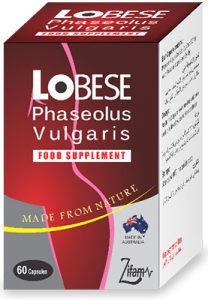
Weight Management - Need of our Generation
In today’s era, overweight and obesity are the major public health issues as it is associated with increased cardiovascular and disability burden and is only continuously rising worldwide.
Due to rapid urbanization, maintaining healthy weight is becoming challenging. Preference of sedentary over physically active lifestyle, increased screen time, automation, day-to-day stress, and quick hunger fixation with processed foods are resulting in unhealthy weight gain.
As per WHO report, more than 1.9 billion adults aged 18 years & older are overweight and worldwide prevalence of obesity nearly tripled between 1975 and 2016.1 Obesity increases the risk of developing type 2 diabetes, heart diseases, non-alcoholic fatty liver disease and culminates into a negative psychological impact.
Our body contains two types of fats, visceral fats, and subcutaneous fats. Based on the latest research, visceral fat is a greater health concern than subcutaneous fat and is a real culprit linked with an increase in total cholesterol (TC) and low-density lipoprotein cholesterol (LDL-C)- a type of bad cholesterol; and decreases in High-density lipoprotein cholesterol (HDL-C) – the good cholesterol, and insulin resistance, therefore leading to metabolic dysfunction.
It is fortunate that, with each unit of weight loss, we can lose some visceral fat. It is therefore advised to follow a healthy, well-balanced diet and physically active lifestyle.
For long-term adherence and success, exercise and diet must easily be in alignment with your lifestyle and food preferences. Even the European Practical and Patient-centered guidelines favor an individualized approach for obesity management among adults.2
Exercise and weight loss:
Regular exercise helps lose weight and also reduces the risk of developing serious illnesses. Adults aged 19 to 64 years can aim to build up to 2 hours and 30 minutes of moderate-intensity aerobic activity a week that can be scheduled depending on their convenience.
Diet and healthy lifestyle:
Follow a convenient and sustainable plan for longer benefits. Nutrition researchers recommend consuming high-quality, nutritious whole foods, a lot of vegetables, and to avoid white flour, sugars, unhealthy fats, and processed foods.3
Other lifestyle adaptations needed are, eating slowly, it makes you feel fuller and help achieve satiety. It is also important to get good quality sleep free from digital screen exposure.
Medications and Artificial Weight Loss Supplements:
Modern anti-obesity medications are often associated with gastrointestinal adverse effects and therefore reduces the success of therapeutic goals. The other reported controversies associated with their use include liver, cardiovascular, mental health, and cognitive side-effects.
Evidence of Natural Supplements
Try safe and clinically proven natural supplements to reduce weight in a sustained and safer way.
Phaseolus vulgaris: It is scientifically proven that Phaseolus vulgaris extract significantly reduces body weight and waist circumference.4
Green tea: It is reported that green tea intake effectively reduces visceral fat. Also, it leads to decreases total cholesterol and LDL-C levels consistently.
Guarana: Lowers LDL-C, may prevent cardiometabolic diseases without inducing GI side effects.
Key Takeaway:
Healthy lifestyle interventions, such as regular physical activity and mindful eating, complemented with prudent use of natural supplements and medications when applicable, could help in healthy weight management and support overall health.
References
Adapted from:
- https://www.who.int/news-room/fact-sheets/detail/obesity-and-overweight
- Obes Facts 2019;12:40–66
- https://www.health.harvard.edu/blog/weight-loss-for-life-the-dietfits-study-2018040913595)
- The Journal of Applied Research Vol.10, No. 2, 2010.73-79
An Awareness Initiative from Makers of:


Product of:

Zifam Pinnacle Pty Ltd,
Sydney, Australia



